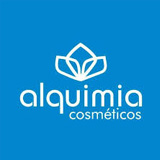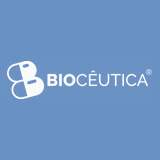In the quest for youthful, radiant skin, the beauty industry is inundated with an array of products and treatments promising miraculous results. Among these, collagen stands out as a widely celebrated ingredient, touted for its anti-aging properties. But what exactly is collagen? How does it impact our skin, and are there effective ways to boost its levels as we age? This article delves into the science behind collagen, its benefits for skin health, and ways to incorporate it into your anti-aging skincare regimen.
Understanding Collagen
Collagen is the most abundant protein in our bodies, accounting for about a third of its protein composition. It is a vital structural component in various tissues, including skin, bones, tendons, ligaments, and cartilage. In skin, collagen provides structural support and elasticity, contributing to its firmness and overall appearance.
The Role of Collagen in Skin Health
As we age, collagen production decreases, leading to visible signs of aging such as wrinkles, sagging, and dryness. By the age of 30, our bodies typically begin to produce about 1% less collagen each year. Factors such as sun exposure, smoking, poor diet, and environmental pollutants can accelerate collagen loss, making it essential to understand how to preserve and boost this protein for youthful skin.
Types of Collagen
Collagen is composed of amino acids, primarily glycine, proline, and hydroxyproline. There are several types of collagen, but the four predominant types in the skin are:
- Type I: The most abundant type, providing structure and strength. It accounts for about 90% of the collagen in our skin.
- Type II: Mainly found in cartilage, supporting joint health.
- Type III: Often found alongside Type I, contributing to the skin’s elasticity and suppleness.
- Type IV: A key component of the skin’s basement membrane, playing a vital role in the skin’s structure.
How Collagen Affects Skin Appearance
Collagen contributes significantly to skin hydration, texture, and overall appearance. When collagen levels are robust:
- Firmness and Elasticity: Adequate collagen gives skin its firmness, preventing sagging and maintaining a youthful contour.
- Hydration and Plumpness: Collagen helps retain moisture, keeping skin hydrated and plump, reducing the appearance of fine lines and wrinkles.
- Healing and Regeneration: Collagen plays a crucial role in wound healing and skin regeneration, promoting a healthier appearance.
The Aging Process and Collagen Depletion
As mentioned earlier, collagen levels decrease with age, leading to signs of aging. Here’s a more detailed look at the aging process and its impact on collagen levels:
Intrinsic Aging
Intrinsic aging, or chronological aging, refers to the natural aging process at a cellular level. It involves:
- Decreased Collagen Production: The dermal layer of the skin produces less collagen, leading to thinner skin and a loss of elasticity.
- Reduced Cellular Turnover: As we age, the process of shedding dead skin cells slows down, resulting in duller skin.
- Hormonal Changes: Fluctuations in hormones, especially during menopause, can lead to further collagen loss and dryness.
Extrinsic Aging
Extrinsic aging is influenced by external factors and lifestyle choices, including:
- Sun Exposure: Ultraviolet (UV) rays damage collagen fibers and accelerate its breakdown, resulting in premature aging signs like wrinkles and age spots.
- Smoking: Tobacco reduces blood flow to the skin, leading to a decrease in oxygen and nutrients necessary for collagen production.
- Environmental Pollutants: Exposure to toxins can impact collagen synthesis and contribute to oxidative stress, resulting in skin aging.
The Collagen Matrix
The skin’s structure is often compared to a sponge, where collagen provides the scaffolding that allows for skin to maintain its shape and hydration. A well-organized matrix of collagen fibers keeps the skin lifted and youthful. When collagen breaks down, this matrix collapses, contributing to sagging and wrinkles.
Boosting Collagen for Skin Health
Given the significant role of collagen in skin health, many individuals are eager to find ways to support and stimulate its production. Here are several methods to enhance collagen levels:
Dietary Approaches
-
Collagen Supplements:
Many people turn to collagen hydrolysate supplements, which are derived from animal sources (usually bovine or marine). These can stimulate the body’s collagen synthesis due to the presence of amino acids. -
Protein-Rich Foods:
Incorporating high-quality protein sources, such as chicken, fish, eggs, and dairy, provides essential amino acids necessary for collagen formation. -
Fruits and Vegetables:
Vitamin C is crucial for collagen synthesis since it acts as a co-factor for the enzymes involved in collagen formation. Citrus fruits, berries, bell peppers, and dark leafy greens are excellent sources of this vitamin. -
Healthy Fats:
Omega-3 fatty acids promote skin health by reducing inflammation and supporting overall cellular health. Sources include fish, flaxseeds, and walnuts. - Bone Broth:
This nutrient-dense broth made from simmered animal bones is rich in collagen and other beneficial compounds that can support skin health.
Topical Treatments
-
Retinoids:
Vitamin A derivatives have been proven to promote collagen production and improve skin elasticity. They enhance cellular turnover and can reduce the appearance of fine lines. -
Peptides:
Skincare products that contain peptides signal the skin to boost collagen production. Peptides help repair skin damage and reduce signs of aging. -
Hyaluronic Acid:
While not collagen itself, hyaluronic acid is known for its ability to hold moisture in the skin. It helps improve skin plumpness and may support collagen synthesis. - Antioxidants:
Products rich in antioxidants, such as vitamins C and E, protect the skin from oxidative stress and support collagen stability.
Lifestyle Choices
-
Sun Protection:
Wearing sunscreen daily and protective clothing reduces UV exposure, protecting collagen and preventing premature aging. -
Hydration:
Drinking plenty of water keeps the skin hydrated from within, supporting the structure of collagen. - Sleep:
Quality sleep is essential for skin repair and regeneration. Growth hormone released during sleep facilitates collagen production.
Advanced Treatments for Collagen Stimulation
In addition to dietary and topical approaches, several aesthetic treatments can enhance collagen production:
-
Microneedling:
This procedure involves using fine needles to create micro-injuries in the skin, stimulating the body’s natural healing process and encouraging collagen production. -
Laser Treatments:
Laser resurfacing therapies target the skin’s deeper layers, promoting collagen regeneration and treating signs of aging, uneven texture, and pigmentation. -
Chemical Peels:
Chemical exfoliation can promote collagen production by removing the outer layer of dead skin cells and stimulating new cell growth. - Radiofrequency Treatments:
This non-invasive treatment uses energy to heat the dermal tissue, stimulating collagen synthesis and tightening the skin.
Combining Methods for Enhanced Results
For optimal results, consider combining dietary, topical, and professional approaches. For example, using a collagen supplement while incorporating retinoids in your skincare routine and protecting your skin from the sun creates a comprehensive anti-aging strategy.
Conclusion
Collagen plays a critical role in maintaining youthful, vibrant skin. Understanding its function and dynamics is essential in addressing the common signs of aging. By adopting a holistic approach—stemming from healthy dietary choices and proper skincare routines to professional treatments—individuals can effectively boost their collagen levels and achieve the youthful glow they desire.
Investing in your skin’s health by prioritizing collagen will ultimately pave the way for a more radiant, youthful complexion. As research continues to explore the intricacies of collagen and its effects on skin, staying informed and proactive is the key to achieving enduring beauty.
FAQs
1. At what age does collagen production start to decline?
Collagen production typically begins to decrease around the age of 30, with a reduction of about 1% per year.
2. Can dietary collagen supplements improve skin health?
Yes, studies suggest that taking collagen supplements can boost the skin’s collagen levels, leading to improvements in skin elasticity and hydration.
3. Is it possible to increase collagen levels naturally?
Absolutely! Eating a balanced diet rich in vitamin C, protein, and omega-3 fatty acids while protecting your skin from sun exposure can help maintain collagen levels.
4. How long does it take to see results from collagen supplements?
Most individuals may start to notice improvements in skin texture and hydration within 4 to 12 weeks of regular collagen supplementation.
5. Are there side effects associated with collagen supplements?
Collagen supplements are generally considered safe for most people. However, those with allergies to specific sources (e.g., fish or shellfish) should consult a doctor before use.
6. Can I boost collagen production without supplements?
Yes, incorporating a healthy diet, protecting your skin from UV exposure, and using topical treatments with retinoids and peptides can significantly boost collagen production.
7. What are the best topical ingredients for collagen production?
Topical ingredients such as retinoids, peptides, vitamin C, and hyaluronic acid have been shown to stimulate collagen synthesis effectively.
8. Are professional treatments necessary for collagen stimulation?
While not necessary, professional treatments like microneedling and laser therapy can enhance collagen production and improve skin texture more rapidly than at-home methods.
By addressing your collagen needs holistically, you can take crucial steps toward maintaining youthful skin as you age.
Of course! However, I would need you to provide the specific article title or the topic you’d like me to write about. Once you share that, I can create a detailed response for you.




